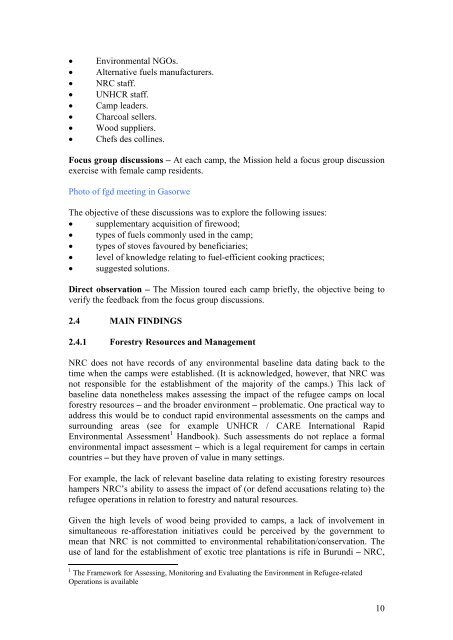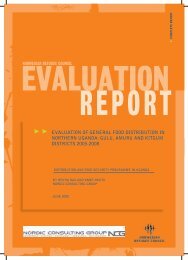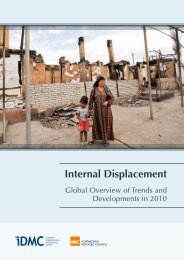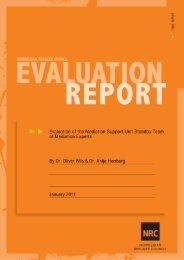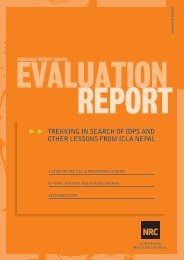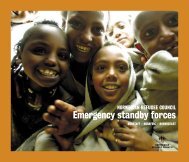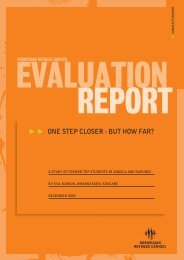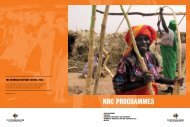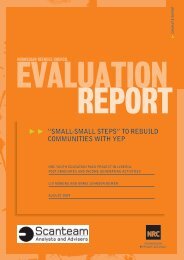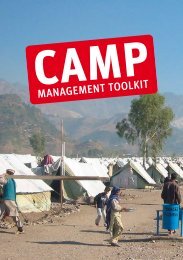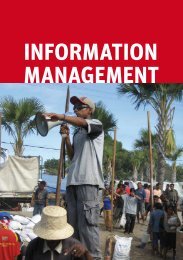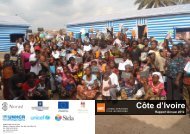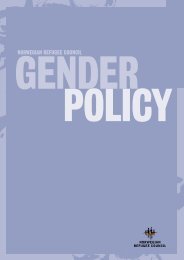Download full report - English version - ProAct Network
Download full report - English version - ProAct Network
Download full report - English version - ProAct Network
You also want an ePaper? Increase the reach of your titles
YUMPU automatically turns print PDFs into web optimized ePapers that Google loves.
Environmental NGOs.<br />
Alternative fuels manufacturers.<br />
NRC staff.<br />
UNHCR staff.<br />
Camp leaders.<br />
Charcoal sellers.<br />
Wood suppliers.<br />
Chefs des collines.<br />
Focus group discussions At each camp, the Mission held a focus group discussion<br />
exercise with female camp residents.<br />
Photo of fgd meeting in Gasorwe<br />
The objective of these discussions was to explore the following issues:<br />
supplementary acquisition of firewood;<br />
types of fuels commonly used in the camp;<br />
types of stoves favoured by beneficiaries;<br />
level of knowledge relating to fuel-efficient cooking practices;<br />
suggested solutions.<br />
Direct observation The Mission toured each camp briefly, the objective being to<br />
verify the feedback from the focus group discussions.<br />
2.4 MAIN FINDINGS<br />
2.4.1 Forestry Resources and Management<br />
NRC does not have records of any environmental baseline data dating back to the<br />
time when the camps were established. (It is acknowledged, however, that NRC was<br />
not responsible for the establishment of the majority of the camps.) This lack of<br />
baseline data nonetheless makes assessing the impact of the refugee camps on local<br />
forestry resources and the broader environment problematic. One practical way to<br />
address this would be to conduct rapid environmental assessments on the camps and<br />
surrounding areas (see for example UNHCR / CARE International Rapid<br />
Environmental Assessment 1 Handbook). Such assessments do not replace a formal<br />
environmental impact assessment which is a legal requirement for camps in certain<br />
countries but they have proven of value in many settings.<br />
For example, the lack of relevant baseline data relating to existing forestry resources<br />
hampers NRC s ability to assess the impact of (or defend accusations relating to) the<br />
refugee operations in relation to forestry and natural resources.<br />
Given the high levels of wood being provided to camps, a lack of involvement in<br />
simultaneous re-afforestation initiatives could be perceived by the government to<br />
mean that NRC is not committed to environmental rehabilitation/conservation. The<br />
use of land for the establishment of exotic tree plantations is rife in Burundi NRC,<br />
1 The Framework for Assessing, Monitoring and Evaluating the Environment in Refugee-related<br />
Operations is available<br />
10


